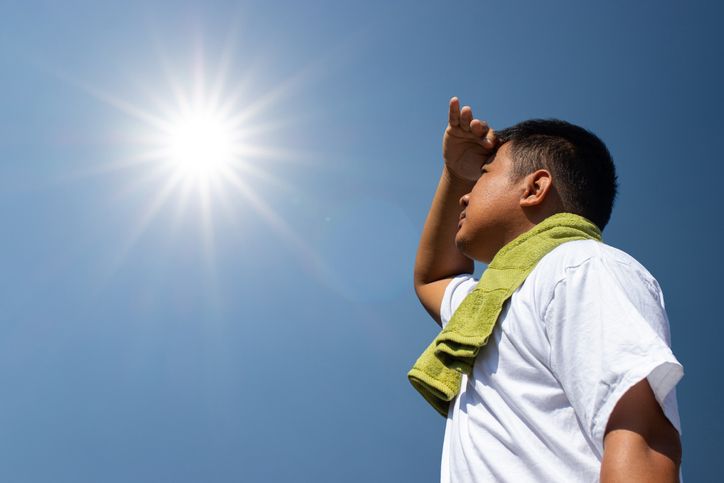Introduction:
Sun poisoning, a severe form of sunburn, occurs after prolonged or intense exposure to ultraviolet (UV) radiation from the sun. It's crucial to understand that sun poisoning is essentially a more serious degree of sunburn, not a distinct condition. This means that while all cases of sun poisoning involve sunburn, not all sunburns are severe enough to be considered sun poisoning.

Sun poisoning manifests as an inflammatory reaction in the skin, triggered by damage from UV radiation. This reaction leads to a cascade of symptoms that can range from uncomfortable to debilitating. Recognizing the signs and symptoms of sun poisoning is crucial for timely treatment and preventing potential complications.
Recognizing Sun Poisoning Symptoms:
Sun poisoning presents with a range of symptoms that often extend beyond the typical redness and discomfort associated with a mild sunburn. These symptoms can vary in severity but often include:
- Severe Skin Redness and Pain: The affected area appears intensely red and is painful to the touch.
- Blistering: Large, fluid-filled blisters may develop, signaling a more severe reaction.
- Headache: A persistent, throbbing headache is a common systemic symptom of sun poisoning.
- Fever and Chills: The body's inflammatory response can lead to a fever, often accompanied by chills.
- Nausea and Vomiting: These symptoms indicate a more systemic reaction to the sunburn.
- Dizziness and Weakness: Severe sun poisoning can cause dehydration, leading to dizziness and weakness.
- Dehydration: Symptoms include increased thirst, dry mouth, decreased urination, and fatigue.
Seeking Treatment for Sun Poisoning:
If you suspect sun poisoning, seeking immediate medical attention is crucial. While mild cases can often be managed with home remedies, more severe cases may require professional medical care. Treatment options often include:
- Cool Compresses: Applying cool compresses to the affected area can soothe the skin and reduce inflammation.
- Over-the-Counter Pain Relievers: Over-the-counter pain medications, such as ibuprofen or acetaminophen, can help manage pain and reduce fever.
- Topical Corticosteroids: In some cases, your doctor may prescribe topical corticosteroids to reduce inflammation and itching.
- Intravenous Fluids: For severe cases involving dehydration, intravenous fluids may be necessary.
- Hospitalization: In extreme cases, hospitalization might be required to monitor and manage symptoms.
Preventing Sun Poisoning:
Preventing sun poisoning is far more effective than treating it. Taking these precautions can significantly reduce your risk:
- Limit Sun Exposure: Minimize your time in the sun, especially during peak hours (10 a.m. to 4 p.m.).
- Wear Protective Clothing: Cover up with lightweight, loose-fitting clothing, a wide-brimmed hat, and sunglasses.
- Apply Sunscreen Regularly: Use a broad-spectrum sunscreen with an SPF of 30 or higher, and reapply every two hours, or more frequently if swimming or sweating.
- Stay Hydrated: Drink plenty of water, especially when spending time outdoors.
Remember, protecting yourself from excessive sun exposure is vital for maintaining healthy skin and preventing sun poisoning.

.jpg)